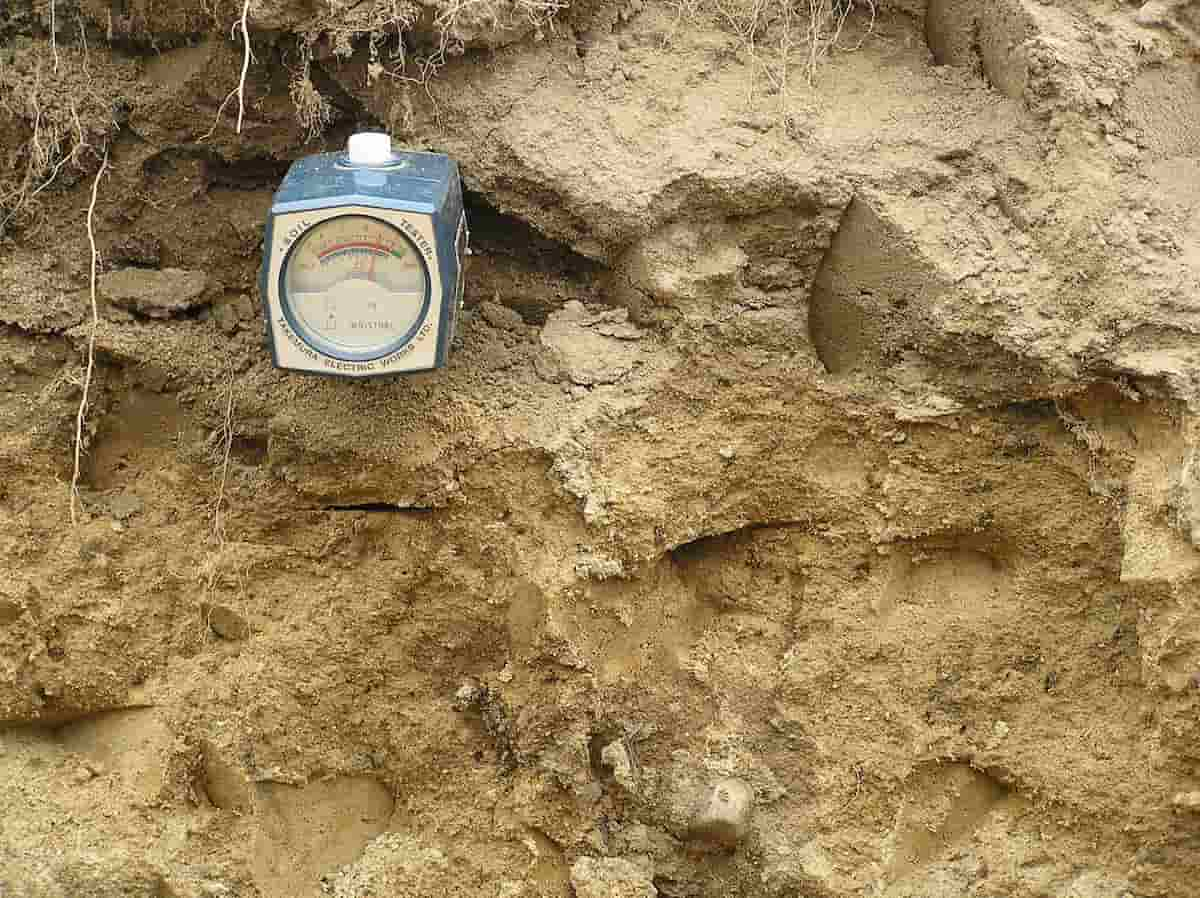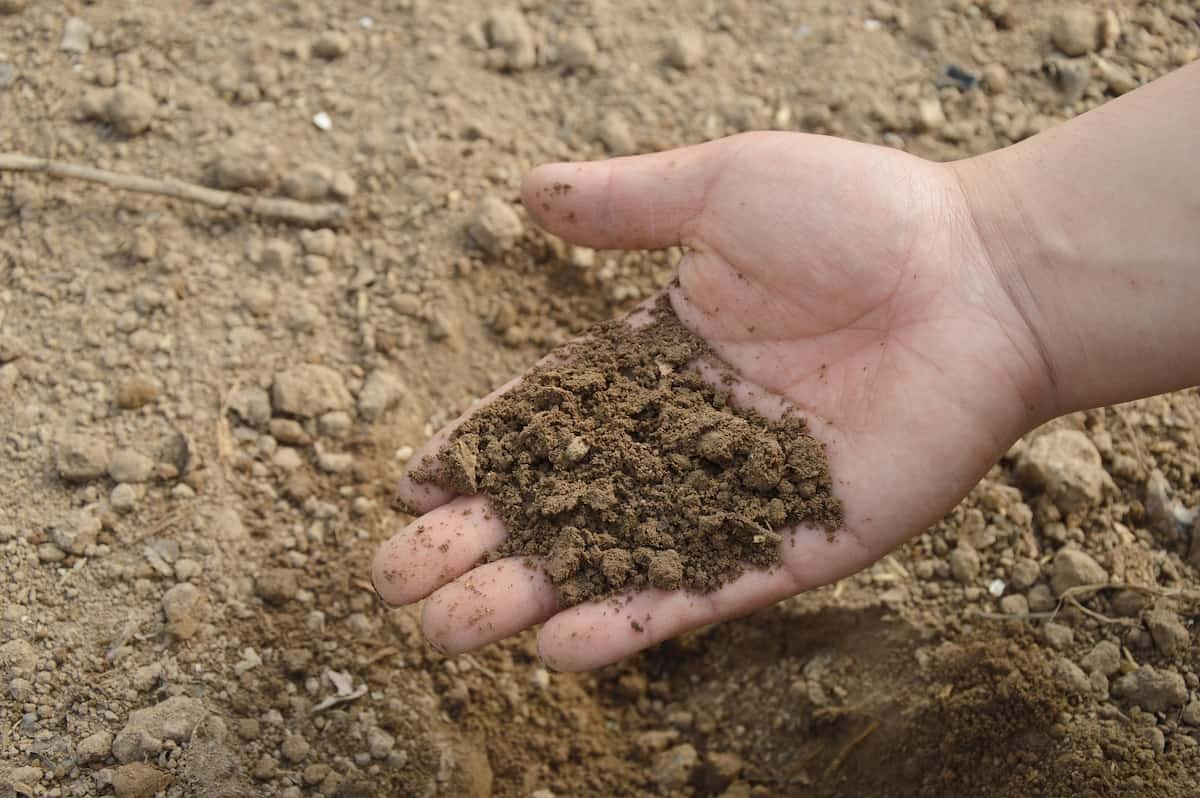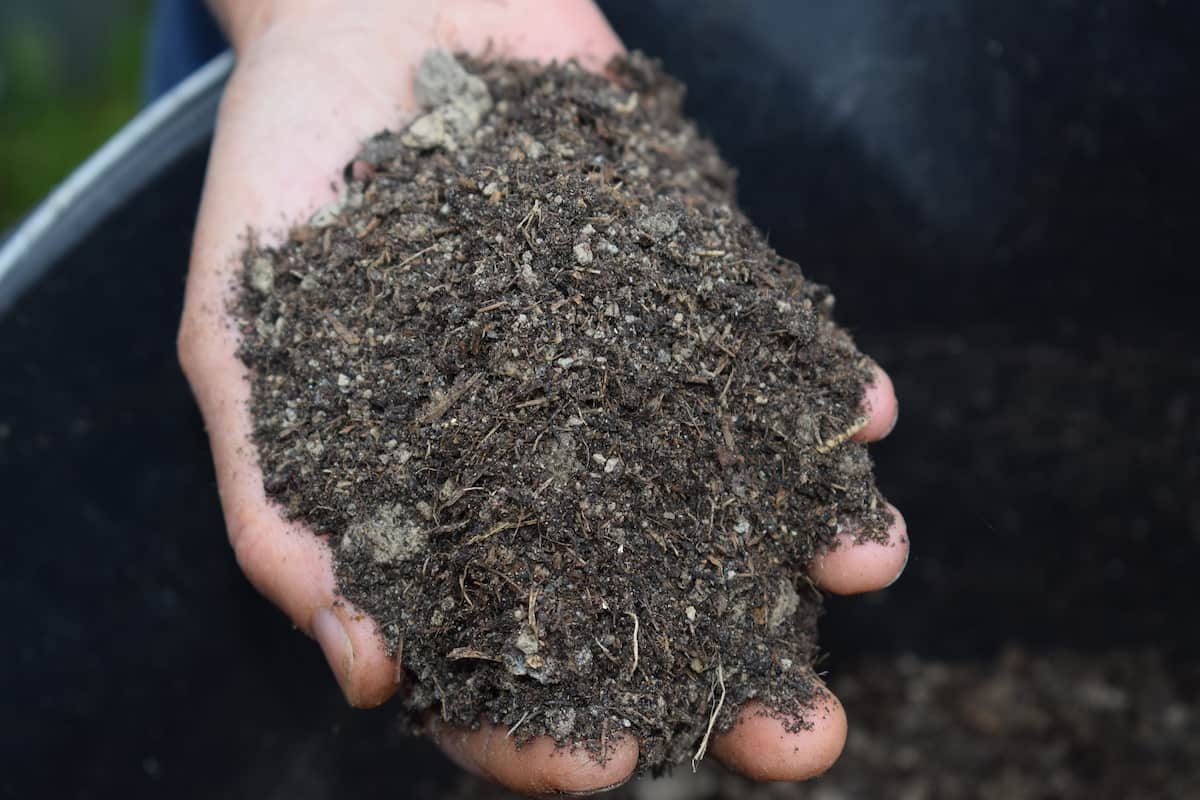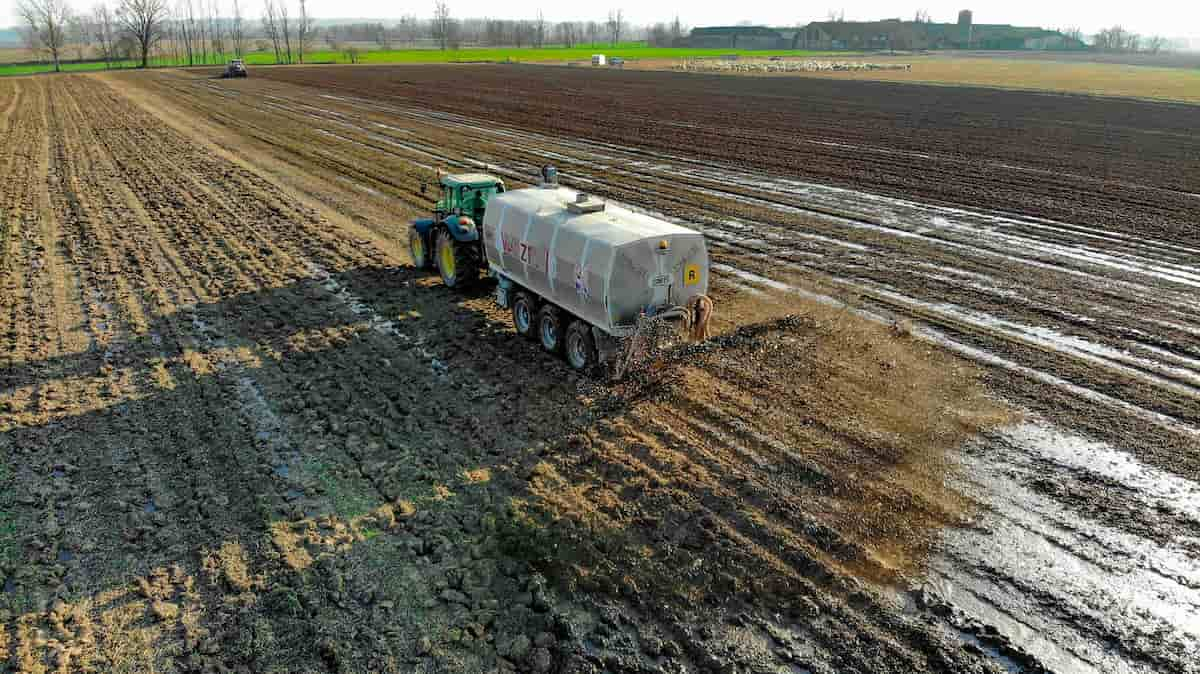Soil is the foundation of all plants and is responsible for absorbing and holding water, nutrients, and other chemicals necessary for healthy plant growth. To maintain optimum soil conditions, you need to keep its pH level balanced. Soil pH is important for agriculture because it affects crops’ growth, health, and productivity. There are several ways to achieve this balance, but the most effective method depends on the situation.

How to balance soil pH in agriculture
What is soil pH in agriculture?
Soil pH levels measure the acidity or alkalinity of the soil. It ranges from 0 to 14, with 7 being neutral. Many factors can affect soil pH, including weather conditions, plant activities, and nutrients. To maintain a healthy soil balance, farmers often adjust the pH of their soil using agricultural lime or sulfur. However, uncontrolled, overly acidic, alkaline soil can damage plants and impede nutrient absorption. To prevent this problem, it’s important to periodically monitor your soil’s pH and make any necessary corrections. Here are some tips for keeping your soil pH in check:
- Test your soil regularly to determine its acidity or alkalinity levels.
- Make adjustments to your farming practices if needed to keep the pH within an acceptable range.
- Use appropriate fertilizers and amendments to help balance your soil’s nutrients.
How to Balance Soil pH?
Soil pH is a key factor in agriculture and can greatly impact crop yields and soil health. In most cases, maintaining a balanced pH level is important for healthy plants and soils. Balancing pH levels in agriculture can be a challenge. Proper pH levels are essential for plant growth and health. Still, they can be easily disrupted by factors like high inputs of manure or commercial fertilizers, drought, or heavy use of pesticides or herbicides. Here are different ways to balance soil pH:
Use an organic amendment
Adding organic matter to your soil can help to balance the pH levels and improve soil fertility. Some common organic amendments include compost, straw, and leaf mold.
Raise the levels of acidity with manure or compost
Ammonia is a naturally occurring acid that can be added to your soil to increase alkalinity. Manure or compost can also function as an acidity-producing agent, which can help to achieve the desired pH balance.
Use lime or sulfur dioxide herbicides
Herbicides containing lime or sulfur dioxide must be applied at the correct rate to achieve the desired pH balance. These herbicides break down plant cell walls, which neutralizes the acidity in the soil and lowers the pH level. Using these herbicides sparingly is important, so they don’t damage beneficial microorganisms or cause ecological damage.
Use compost
Use compost instead of commercial fertilizers or manure. Compost is rich in organic matter and helps to balance the soil’s pH.
Mulching
Mulch your plants with organic materials to help keep the ground cooler and reduce erosion risk. This will also help maintain the soil’s acidity since clogged pores from mulch block rainwater from reaching the below earth. Avoid using chemical pesticides or herbicides unless necessary. These chemicals can change the soil’s pH and negatively impact plant growth.
In case you missed it: How to Fix Zinc Deficiency in Soil and Plants: Symptoms, Effect, Causes, Adding Naturally, and Chemically

Ways to adjust soil pH
Various ways to adjust soil pH depend on the type of soil and the desired goals. There are a few ways to adjust soil pH in agriculture. One way is to add sulfur to the soil. Sulfur helps to balance the soil’s acidity. Another way is to add lime to the soil. Lime helps to make the soil more alkaline. The three most common methods are organic matter amendment, acidifying soils, and alkalinizing soils.
- Organic Matter Amendment: Adding organic matter to acidic or alkaline soils can help balance the pH, add nutrients, and improve soil texture. Organic matter can come from composting, farming residues, or green waste products.
- Acidifying Soils: Acids can be added to alkaline soils to lower the pH. This is often done to enable more efficient plant growth or to remove excess salts from the soil. Sulfur dioxide or nitrogen fertilizer can also be used to acidify soils.
- Alkalinizing Soils: Alkalis can be added to acidic soils to raise the pH. This helps reduce the chances of plants becoming stunted or succumbing to root disease. Potassium sulfate or lime may also be used in this process.
Lime can be added directly to the soil as a solution or put into amendments such as compost or manure. The advantage of adding lime directly is that it causes a quick reaction in the soil and results in a lower concentration of lime in the end product, which means less damage to plants when applied topically or consumed by animals. The downside of adding lime directly is that it can be expensive and require time for the reaction.
What are the benefits of a balanced soil pH?
A balanced soil pH is essential for a healthy garden or farm. Having a pH in the correct range has many benefits, including better plant health and improved yield. However, when soil is too acidic or too alkaline, it can damage plants. Too high a pH can lead to stunted growth, chlorosis (yellowing of leaves), and even dieback. On the other hand, soils that are too low in pH can be toxic and inhibit root growth.
The Basics of Soil pH
It is a measure of how acidic or alkaline a soil is. The pH scale goes from 0 (most acidic) to 14 (most alkaline). Therefore, a soil’s pH range can be determined by taking a soil sample and measuring its acidity or alkalinity. Most soils are neutral (7.0-7.6), but some are acid or alkaline. Too much acidity can lead to erosion and plant kill, while too much alkalinity can make plants brittle and cause them to suffocate.
When growers adjust soil pH, they balance these two factors: ensuring nutrients and water reach plants appropriately while preventing environmental harm. A pH level below 7 is considered acidic, while a pH above 7 is considered alkaline. Most soils fall between 6 and 7 on the pH scale. When the soil becomes too acidic or too alkaline, it can become difficult for plants to grow and produce food.
In case you missed it: How to Fix Calcium Deficiency in Soil and Plants: Symptoms, Causes, Adding Naturally, and Chemically

Managing soil pH with Agricultural Amendments
Soil pH affects a wide range of agricultural processes, from the uptake of nutrients to crop production. Therefore, a balanced soil pH is essential for healthy plant growth and yields. Therefore, it is important to manage pH levels with agricultural amendments to maintain a healthy soil environment.
Amending soils with organic matter or lime helps to keep the pH level in check while providing beneficial microbes and microorganisms that help break down nutrients in the soil. For crops sensitive to low pH levels, such as citrus trees or flowers, adding sulfur dioxide can also help to balance the soil pH.
Tips to finding the right soil pH
- To find your soil’s pH, you must identify your soil type and evaluate the conditions underneath your plants. Soils can be classified according to their texture and color. Loamy soils are moist and soft when pressed with your fingers. Sandy soils are dry and have a hard feel. Clay soils are sticky and lumpy when wet.
- When evaluating your soil’s condition, consider what you are planting. Some plants prefer acidic soils, while others prefer alkaline soils. Below are tips on finding the right soil pH for different plants:
- Depending on their needs, certain plant types require acidic or alkaline soils (e.g., tomatoes grown in an alkaline environment need an acidifying agent like lime added to their soil). Knowing which plants you have near your garden can help determine if adjustments need to be made to the garden’s pH levels.
- Test the soil before you plant. You can test the soil’s pH using a soil testing kit or by taking a sample to a lab. Soil phosphorus levels can also affect plant growth and health.
What is the importance of soil pH in agriculture?
It is one of the most important factors in crop production. Too high or too low a pH can damage plants, leading to yield loss and poor plant health. Balanced soil pH is essential for crop growth and production. Soil pH is important in agriculture because it affects plants’ uptake of nutrients and water. But unfortunately, it also affects the growth of fungal spores, which can cause plant disease. The main nutrient that soil pH affects is nitrogen. The higher the pH, the more nitrogen plants can take up.
pH also affects how well plants absorb water. Low-pH soils absorb water slowly, while high-pH soils absorb water quickly. This can affect plant growth because it causes them to stay wet longer, which can damage their cells. The effect soil pH has on fungal spores is less well-known but just as important. Spores are essential for plant growth and reproduction, so a balance between fungus and plant is critical for healthy crops. High-pH soils make fungal growth difficult because they soak up water quickly and prevent spores from germinating.
In case you missed it: How to Fix Phosphorus Deficiency in Soil and Plants: Symptoms, Causes, Adding Naturally, and Chemically

What affects soil pH?
Many factors affect soil pH, including climate, parent material, organisms, and metals. Soil pH is also affected by chemical fertilizers used on crops and other land activities such as tillage and erosion. The most important factor in balancing soil pH is adding organic matter to the soil. Adding organic matter increases the soil’s carbon levels, which helps keep the pH balance in check. Proper soil pH is essential for healthy crop growth.
If the soil’s pH falls below a certain level, it can cause various plant problems, including stunted growth, reduced yields, and even plant death. Luckily, there are several ways to adjust soil pH to ensure proper plant growth. Soil pH is important in agriculture because it affects crops’ growth, nutrient availability, and soil organisms’ ability to function. Soil pH can be altered by several factors, including:
- Soil acidity: Acidity is caused by releasing CO2 and other gases from soils. Over time, this can cause the soil to lose its buffering capacity, which means it can’t neutralize acids produced by bacteria and other soil organisms. High levels of acidity can damage plant roots and reduce crop yields.
- pH balance: The ideal pH for plant growth is 6.5 to 7.5. When the pH falls below 6.5 or rises above 8.5, plants may not be able to extract all the available nutrients from the soil or develop diseases.
- Organic matter: Organic matter helps keep soils moist and crumbly, retaining moisture and preventing erosion. It also binds with metals and other minerals, making them less available to plants. In addition, too much organic matter can lead to an increase in acidity levels due to increased microbial activity.
Controlling pH Levels in Soil
It is a very important factor in agriculture. It can control plant growth and can affect the efficiency of fertilizer utilization. Proper pH levels also help to maintain soil fertility and protect against erosion and other problems. There are several ways to adjust soil pH. One approach involves using acids or bases to change the pH level. Other methods include adding phosphates or potassium to the soil or composting manure. It’s important to use a method that works best for your particular situation based on the type of soil and crops being grown.
How to decrease soil pH in agriculture?
A balanced soil pH provides optimum conditions for plant growth and productivity. When the pH falls below 6.5, plants experience stunted growth and chlorosis (yellowing of the leaves), while higher alkalinity levels can lead to root disease and decreased yields. Therefore, properly adjusting your soil’s pH level can help maintain a healthy crop production cycle and improve plant health overall.
In case you missed it: How to Fix Iron Deficiency in Plants and Soil: Causes, Symptoms, Adding Naturally, and Chemically

If you want to maintain soil ph in agriculture, a few methods can be used. One way is to add sulfur to the soil. Sulfur helps to make the soil more acidic, which in turn lowers the ph. Lime can also be added to the soil to increase its pH. Adding these two things together can keep your soil ph balanced and optimize crop production.
- Use organic materials – This includes compost, manure, and Leaves. These materials contain natural processes that can help lower the ph level in the soil.
- Consider applying sulfur – Sulfur is a nutrient that can lower the soil’s ph level. It also helps improve plant growth and stability.
- Think about adding aluminum sulfate – Aluminum sulfate is a mineral that helps lower soil ph levels when applied as an amendment.
Causes of low soil pH in agriculture
Soil pH is a major factor in the growth and health of crops. Low soil pH can cause plants to experience problems such as stunted growth, reduced yields, and susceptibility to pests and diseases. Several factors can contribute to low soil pH, including:
- Irrigation: Overly frequent or heavy irrigation can cause excess runoff, leading to decreased soil moisture levels and decreased soil pH.
- Organic matter: A lack of organic matter in the soil will decrease its ability to buffer environmental changes, such as increased acidity or moisture fluctuations. Additionally, over time the organic matter will decay and produce acids which can further lower the pH of the soil.
- Excess lime: Adding excessive amounts of lime (or other alkaline materials) to the soil can neutralize the acidity caused by decomposing organic material, but this process also leads to the development of calcium oxalate crystals which can block plant roots and inhibit plant growth.
How to raise the pH in soil fast?
There are a few ways to raise soil pH in agriculture. One is to add sulfur dioxide or other sulfur-containing fertilizers to the soil. Another way is to add potassium fertilizer, which raises the pH of the soil. One of the most important factors affecting soil pH is how much acid or base the soil can hold. To manage pH, farmers use various practices, including adding lime or manure to increase the soil’s alkalinity and applying potassium bicarbonate (baking soda) or sulfur to acidify soils.
There are a few methods to raise soil pH, but the most effective method is often using liming materials. Wood ashes are a popular choice because they are both inexpensive and readily available. To apply wood ashes, consider what type of soil you’re working with. If your soil is sandy, for example, you’ll need to add more ash than if it’s clay-based. Next, sprinkle the ashes over the affected area and water the well.
In case you missed it: How to Get Rid of Termites in Soil and Plants: Natural and Chemical Control, Solutions, and Treatment

Finally, let the ash sit for at least two weeks before planting your crops to ensure it has had time to work its magic. It’s important to keep watering your plants regularly while alkalinizing your soil with wood ashes; otherwise, you could end up with stressed plants that struggle to fight off disease. Be sure to check back later in the growing season to ensure that the pH balance remains intact; if it does not, add more ash as needed until everything feels right again.
What is the ideal soil pH for agriculture?
The ideal soil pH range is 6.5 to 7.5, which allows plants to grow and use nutrients while keeping the soil stable. To keep your soil within this range, you’ll need to add organic matter like compost or leaves every year. You can also adjust the amount of lime or fertilizer used in your garden to maintain a healthy pH balance. When soil is too acidic or alkaline, it can cause unwanted plant growth problems, such as stunted plants and yellowing leaves.
Conclusion
Soil pH is important for both crop growth and soil health. A balance between the available nutrients and water allows crops to grow and thrive. To maintain healthy soil, it is important to monitor the pH levels of the soil. Balancing soil pH is an important task for both farmers and gardeners. For farmers, it helps control pests and diseases while promoting a healthy crop. For gardeners, maintaining a balanced soil pH is essential for the growth of plants.
- Types of Pesticides Used in Agriculture: A Beginner’s Guide
- Economical Aquaculture: A Guide to Low-Budget Fish Farming
- 15 Common Planting Errors That Can Doom Your Fruit Trees
- How to Make Houseplants Bushy: Effective Tips and Ideas
- Innovative Strategies for Boosting Coconut Pollination and Yield
- Pollination Strategies for Maximum Pumpkin Yield
- The Complete Guide to Chicken Fattening: Strategies for Maximum Growth
- Natural Solutions for Tulip Problems: 100% Effective Remedies for Leaf and Bulb-Related Issues
- Revolutionizing Citrus Preservation: Towards a Healthier, Greener Future
- Natural Solutions for Peony Leaf and Flower Problems: 100% Effective Remedies
- Maximizing Profits with Avocado Contract Farming in India: A Comprehensive Guide
- Natural Solutions for Hydrangea Problems: 100% Effective Remedies for Leaf and Flowers
- The Ultimate Guide to Choosing the Perfect Foliage Friend: Bringing Life Indoors
- From Sunlight to Sustainability: 15 Ways to Use Solar Technology in Agriculture
- The Ultimate Guide to Dong Tao Chicken: Exploring from History to Raising
- The Eco-Friendly Makeover: How to Convert Your Unused Swimming Pool into a Fish Pond
- Mastering the Art of Delaware Chicken Farming: Essentials for Healthy Backyard Flocks
- 20 Best Homemade Fertilizers for Money Plant: DIY Recipes and Application Methods
- How to Craft a Comprehensive Free-Range Chicken Farming Business Plan
- Brighten Your Flock: Raising Easter Egger Chickens for Beauty and Bounty
- How to Optimize Your Poultry Egg Farm Business Plan with These Strategies
- Subsidy for Spirulina Cultivation: How Indian Government Schemes Encouraging Spirulina Farmers
- Ultimate Guide to Raising Dominique Chickens: Breeding, Feeding, Egg-Production, and Care
- Mastering the Art of Raising Jersey Giant Chickens: Care, Feeding, and More
- Ultimate Guide to Raising Legbar Chickens: Breeding, Farming Practices, Diet, Egg-Production
- How to Raise Welsummer Chickens: A Comprehensive Guide for Beginners
- How to Protect Indoor Plants in Winter: A Comprehensive Guide
- Ultimate Guide to Grow Bag Gardening: Tips, Tricks, and Planting Ideas for Urban Gardeners
- Guide to Lotus Cultivation: How to Propagate, Plant, Grow, Care, Cost, and Profit
- Agriculture Drone Subsidy Scheme: Government Kisan Subsidy, License, and How to Apply Online
- Ultimate Guide to Raising Araucana Chickens: Breed Profile, Farming Economics, Diet, and Care
- Bringing Hydroponics to Classroom: Importance, Benefits of Learning for School Students
- Ultimate Guide to Raising Polish Chickens: Breed Profile, Farming Economics, Diet, and Care
- Ultimate Guide to Raising Australorp Chickens: Profile, Farming Economics, Egg Production, Diet, and Care
- Silkie Chicken Farming: Raising Practices, Varieties, Egg Production, Diet, and Care
- Sussex Chicken Farming: Raising Practices, Varieties, Egg Production, Diet and Care